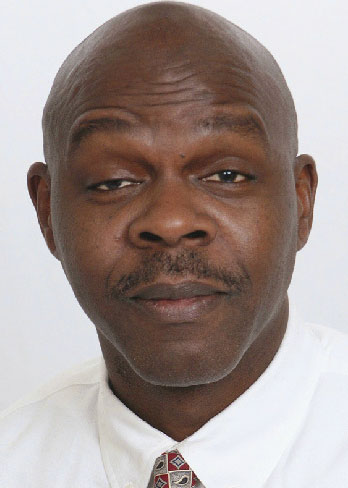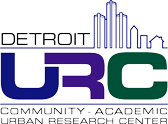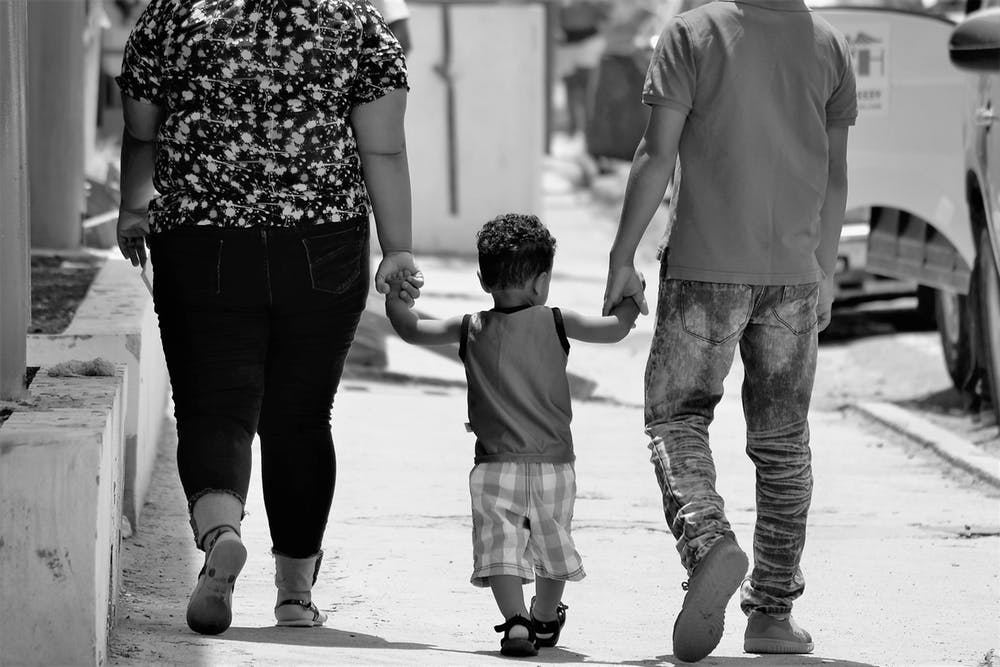Detroit URC Board Partner Spotlight: An Interview with Zachary Rowe, Executive Director of Friends of Parkside

For over 2 decades, Zachary Rowe has been involved with the Detroit URC in some capacity, and in that time, his perspective on research, community-based participatory research (CBPR), and the Detroit URC has grown and changed substantially.
“The Detroit URC - Barbara, Rich (Lichtenstein) and the team, came and made a presentation to one of the organizations that I was working with at the time. They made their normal pitch about working together with communities around research, but they described it as being equal partners. This was back in the 90’s. No one really believed any of that, especially me."
"In fact, twenty years ago, I was probably the most vocal person against research -- really thinking that research was not that important. We never had the opportunity to benefit from the work of the research. Researchers used to just come in, do what they do and leave. They did not engage the community. We still had the same issues that they were researching when they left. And we still did not know what the findings were, so it really was not that helpful."
Mr. Rowe is now the Executive Director of Friends of Parkside, a non-profit, community-based organization that concerns itself with the health, education and safety of the residents that live in the Village at Parkside on the eastside of Detroit. In his role, he has led the organization through several successful research projects, many of which grew from his partnership with the Detroit URC.
"Participating in the Detroit URC and getting involved in CBPR, where partners are all equal partners, I started to see the value of research as a tool to help us to better understand the issues going on in the community and also have some possible solutions to attack those particular issues."
![]()
"I think that has been the biggest benefit -- providing our organization the capacity to look at problems differently.”
Recently Zachary took some time to answer a few questions about his work at Friends of Parkside and his involvement with the Detroit URC.
What do you gain from being on the Detroit URC Board?
One of the biggest benefits of being on the Board of the Detroit URC is being able to develop relationships with folks from the University of Michigan as well as other community partners. One of the things that was true years ago was that west side organizations and east side organizations really did not interact that much. There was enough work on the east side to keep us all busy. There was not enough of a reason to come over to the west side. Maybe we would go there once in a while for a conference or something like that.
But having been at the Detroit URC table for all these years, you have the opportunity to understand what some of your counterparts are experiencing on their side of town. And you begin to realize that some of those issues are pretty much the same. There may be some unique issues depending on the group. For example, east side groups do not really have to deal with immigration that much. But our west side counterparts have to address that. It’s those nuances… you begin to understand what is going on in other parts of the city.
Creating and maintaining relationships is a big thing that I gain from being on the Board.
Are there other ways in which your partnership with the Detroit URC is helpful for you and Friends of Parkside?
In addition to relationships, it helps to have access to different resources. And by “resources”, I mean not only students, who serve as interns, either supporting the organization generally or advancing specific projects, but also having access to others who have expertise in a particular topic.
Also, working with the Detroit URC has allowed our reputation to grow and expand outside of our community. Even though we are a small organization on Detroit’s east side, we have national exposure. We became known nationally by doing presentations with the Detroit URC, as well as being a mentor with the CBPR Partnership Academy.
I was talking to one of the residents of Parkside about doing presentations nationally, at the American Public Health Association (APHA) conference, and she said “I would be so nervous talking to a big group like that.”
I replied, “I’m not really that nervous in those settings. I’m more nervous when I have to present to residents of Parkside.”
She said, “You’re nervous when you talk to us? But we know you.” And I replied, “Yeah, that’s the problem.”
I am not going to see some of those folks from national presentations after the event. But, I will be seeing folks in the neighborhood all the time. And they are not afraid to hold me accountable.
What initiatives are you currently working on?
There is one project that I would really like to find support for -- the "Space for Physical Activities & Community Education" (SPACE) Project. The SPACE project seeks to convert the existing community room into a multi-recreational space for various physical activities, including basketball, volleyball, tennis, and skating for Parkside children and adults.
Right now, the existing community room is a big open space with a high ceiling. The initial plan was that the community room would be usable for basketball, volleyball, large community meetings, baby showers, and other events. Unfortunately, due to budget cuts, it was not built as originally designed. So now, we have this great big room that can hold more than 125 people with a high ceiling, but it is not very functional. Due to the high ceiling and other factors, the room acoustics are terrible. There’s an echo that makes it hard to hear speakers and sometimes one another. The flooring, walls, and doors make it challenging to use for recreational activities like indoor basketball or skating.
We believe that the “Space for Physical Activities & Community Education (SPACE)” project can foster and instill a sense of accomplishment and pride within the Parkside Community and, over time, begin to reverse some of the negative community and health trends facing our children and adults e.g. obesity, type 2 diabetes, high blood pressure and cholesterol.
What do you wish more people knew about Friends of Parkside?
I wish more people knew that we are willing to develop meaningful partnerships that benefit the residents of Parkside and the organization.
Previous Interviews With Board Partners
Joneigh Khaldun, Director and Health Officer at the Detroit Health Department
Suzanne Cleage, Director of Neighborhood Growth at Eastside Community Network
Lidia Reyes-Flores, Executive Director of Latino Family Services
Guy O. Williams, President and CEO of Detroiters Working for Environmental Justice
Sheilah Clay, President and CEO of Neighborhood Service Organization




